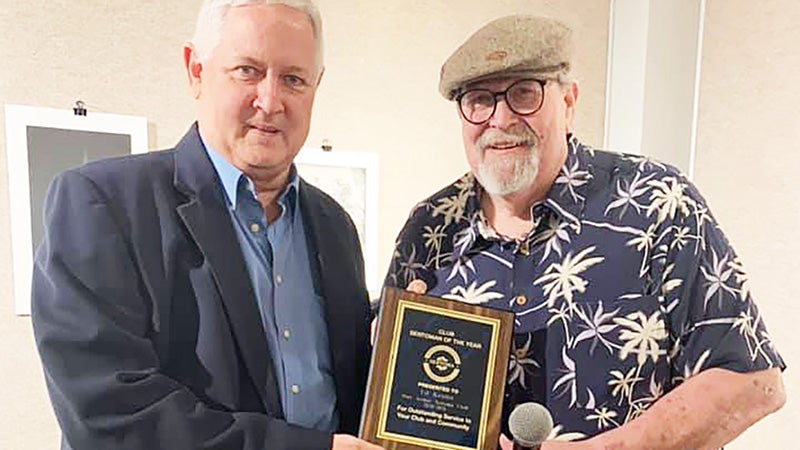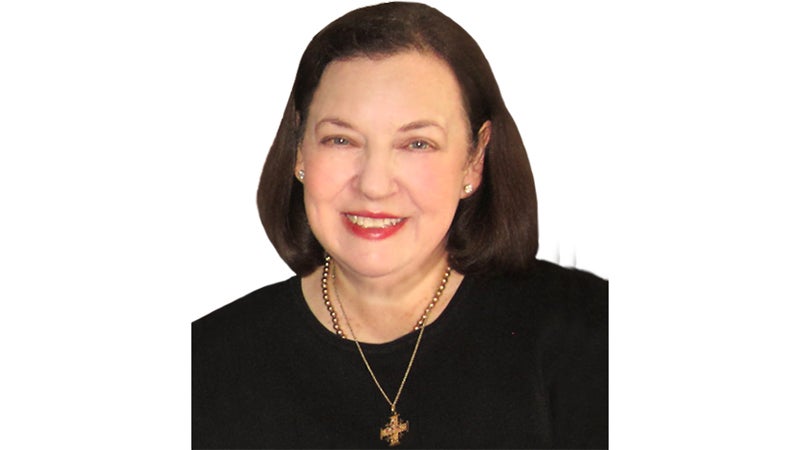When a loss is a gain: Living a healthier life
Published 10:19 am Wednesday, May 3, 2017

- Tony Bonin, 28, has lost 220 pounds so far in his quest to live a healthier lifestyle. (Lorenzo Salinas/The News)
If one wants something badly enough, one will find a way to get it. If one wants to change their life for the better, then that person can do it with enough determination. And if someone wants to tackle a problem that tens of millions of fellow Americans struggle with every day, then that person can do that, too — and be very successful at it in fact.
Ronald “Tony” Bonin has lost 220 pounds over the course of one year and one month. At his heaviest, Bonin weighed in at 504 pounds.
“I was pretty big,” Bonin, 28, said. “I’ve always been a big guy. It’s been a lifelong issue.”
Bonin said he was overweight in the third grade, weighed 300 pounds in high school, weighed 400 pounds at Lamar University and, when he attended law school in Houston, he was near 500 pounds.
“I couldn’t stand for more than five minutes max,” Bonin said. “I couldn’t stay at a grocery store longer than 10 minutes. I had shortness of breath all the time.”
Among his worst periods, Bonin said he could not even take a shower without getting winded and working up a sweat.

Tony Bonin before his decision to change his life with healthier lifestyle habits. (Photo for the News)
“I couldn’t do normal activities like going to the store or walking around the park,” he said. “I used to enjoy going to the movies, but then I couldn’t go anymore because I couldn’t fit in the chairs.
“It was a quality of life issue. It’s the little things you start missing that make you want to lose weight, things that normal people take for granted.”
Bonin said it was also the prospect of the outdoors that spurred his change for better living.
“I couldn’t do anything outside,” he said. “I used to go hunting with my dad when I was a kid. I always wanted to participate in outdoor activities like hiking and climbing.
“When I was big, that was impossible. Now, it’s possible. I just wanted to experience things again.”
Bonin’s extreme obesity was a result of several factors, such as lifestyle, overeating and a seemingly insatiable appetite.
“There was just this constant feeling of hunger,” he said. “After a while on the diet, I just had to get used to feeling hungry.”
According to Bonin, sometimes he couldn’t tell whether he was actually hungry or just felt he should be hungry.
“That’s why I had to structure my meals — four meals a day at 400 calories each,” Bonin said.
He follows a strict 1,600-calorie diet.
“I talked with my primary care physician and asked him if I could do a calorie-restricted diet. He said to go for it.”
Bonin searched online for an appropriate diet to follow and saw that most recommended 1800 calories for a good caloric deficit.
“Most diets do 1800; so, I did 1600,” Bonin said.
Still, nobody’s perfect, and Bonin freely admits to cheating — as long it’s planned and spaced far enough apart.
“I do allow myself a single cheat day per month,” he said. “The first month or two, it was definitely a big adjustment, a shock to the system.
“There were times I blew it, but I didn’t let it derail me like I did in the past. I just said things were going to be different today; and, when I had a cheat day, I got right back on it the next day.”
Bonin made no attempt to deny the difficulty of the task he set himself.
“The hardest part is just trying to resist cravings,” Bonin said. “Or what I call ‘fat panics.’”
Bonin described many instances where he felt he had to eat “or I felt was going to die.”
He cited doctors’ studies that said it takes six to eight weeks to break a habit.
“After you fight it off for the first month or two, things became easier,” he said.

Tony Bonin reports having more energy as a result of his dramatic weight loss. (Lorenzo Salinas/The News)
Among those initial hurdles to overcome was his craving for sodas.
“I cut out sodas completely when I started,” Bonin said. “I had a severe addiction to Coca-Cola. I’d drink it eight to 12 times a day.”
As a result, he had several health issues related to his weight.
“I do have hypothyroid issues. I used to have a bunch of health issues, but they’re going away now.”
Bonin listed type two diabetes, hypertension and a bulging disc in his lower back all as problems that arose as a result of being obese.
“I was severely type two diabetic,” Bonin said. “I took high dosages of a diabetic drug, but my blood sugar reading was consistently over 300 to 400.”
Fortunately, thanks to his dramatic weight loss, Bonin is seeing a positive change in his overall health.
“I don’t take any diabetic medicines anymore,” he said. “I’m almost ready to get off my high blood pressure medicine, too.”
He still takes medicine for his hypothyroidism.
“I never really had a rock bottom moment,” Bonin said. “I hit rock bottom and bounced back a few times before I settled.”
Bonin described a typical day when he was severely overweight.
“When I was at my heaviest, I’d skip breakfast and go to lunch at Taco Bell. I’d spend $30 on the dollar menu.
“I’d tell myself I would eat it over the course of a few days, but then I’d finish it all in one course.
“Then, I’d go to Papa John’s for lunch and get something for dessert. After I would finish that off, I’d grab a snack at 1 or 2 in the morning.”
His current diet contrasts starkly with that of his old in terms of both quality and quantity.
“I definitely eat more salads now,” Bonin said. “I still feel constrained by time, so I eat a lot of canned food like corn and green beans. I also eat a lot of Greek yogurt.”
Bonin said he aims to eat foods high in fiber and low in calories, like fruits and vegetables. He also makes sure when eating canned food to choose the low sodium option.
After sticking to his diet regime for long enough, Bonin started noticing the benefits.
“When I was at my heaviest, I constantly had stomach issues and my energy levels were terrible. For a long while (now), I noticed I have a little more energy and feel less tired.”
In addition, Bonin has started becoming more active in order to live a healthier lifestyle.
“Two months ago, I started exercising — things like lifting weights and a cardio program for people not used to (activity).”
In talking about what advice he would give to people in similar situations, Bonin kept it simple and straightforward:
“Start doing something, even if it’s cutting out sodas at first. Just try.
“When you mess up, don’t give up. Start immediately again the next day.
“It’s better to have a few days where you mess up than to give up on it entirely.”
In fact, Bonin spoke of a conversation he had with someone who had also lost a lot of weight. He had an important takeaway from it.
“You have to treat it like an addiction,” Bonin said of obesity. “If that means you have to be selfish and put your (weight loss) above all the other things in your life, then you have to do it. You have to allow yourself to be a little selfish — or you can very likely die.”





